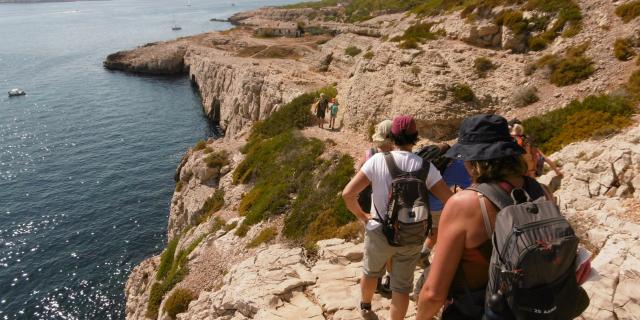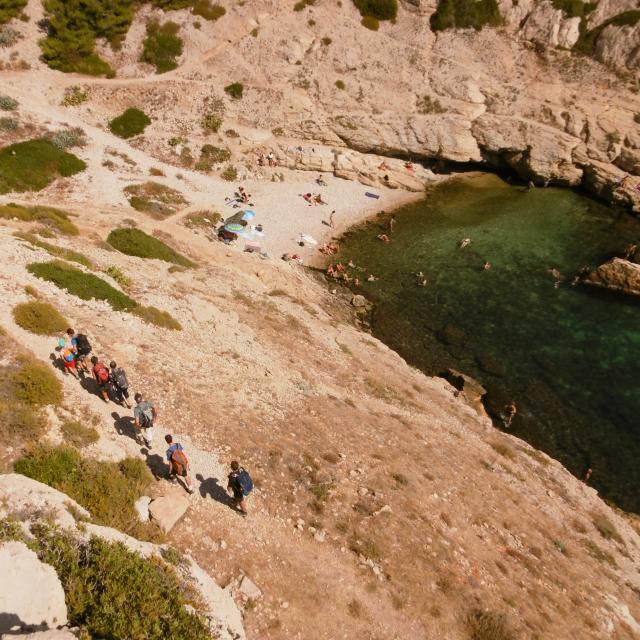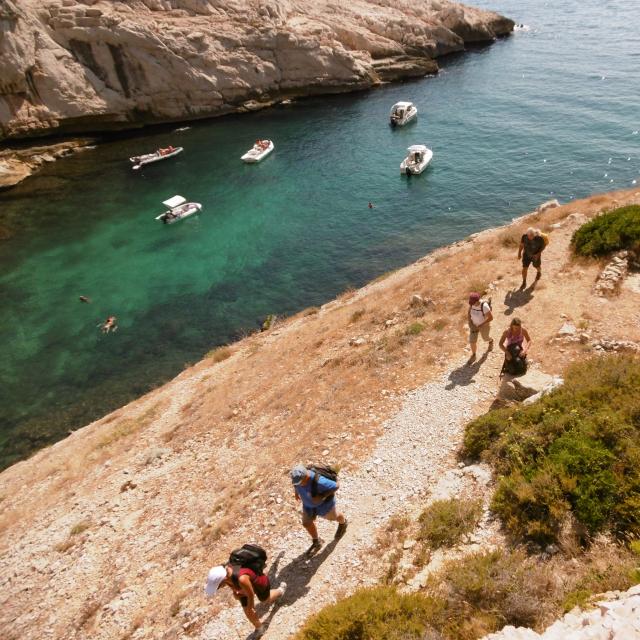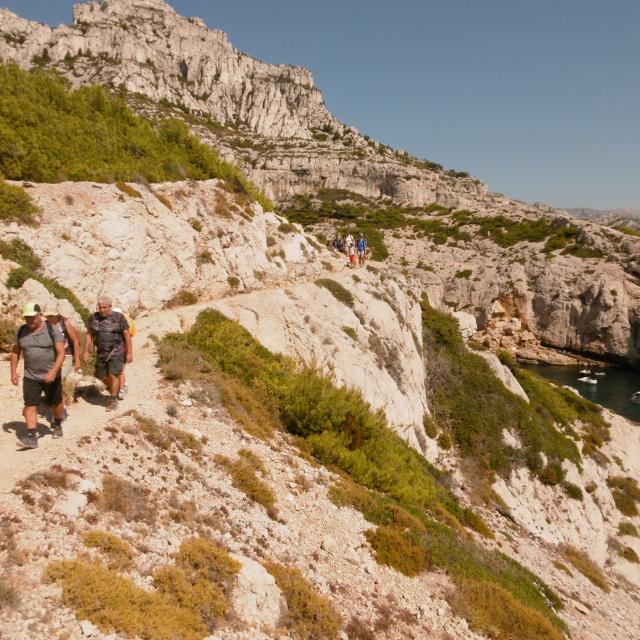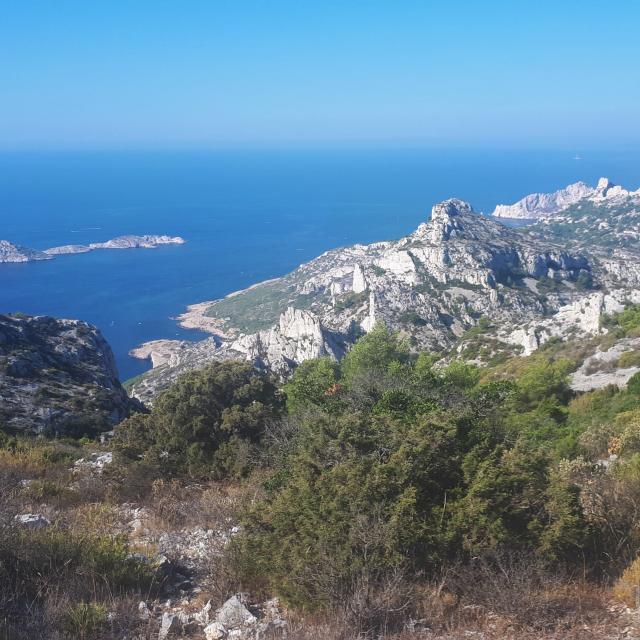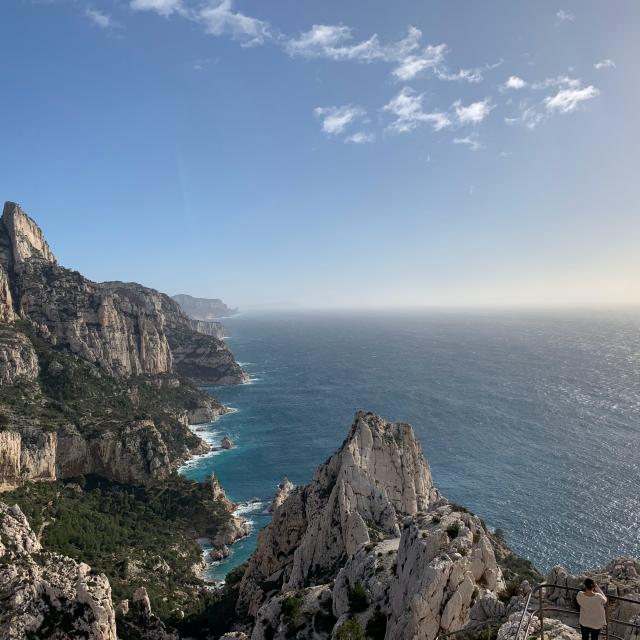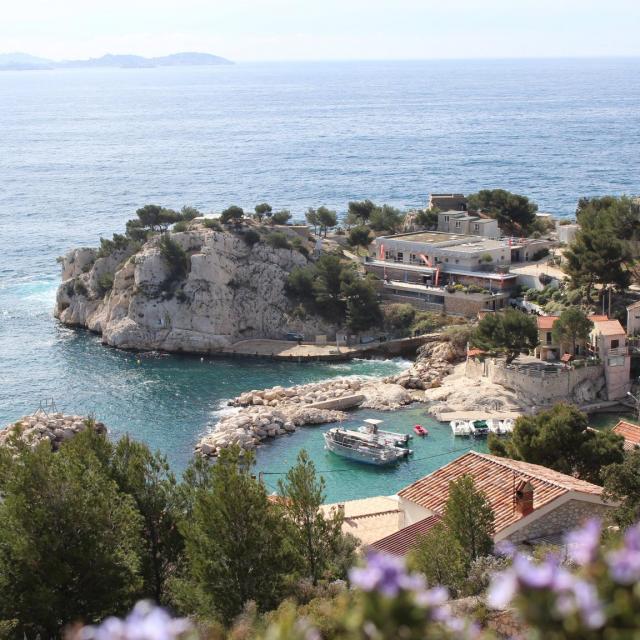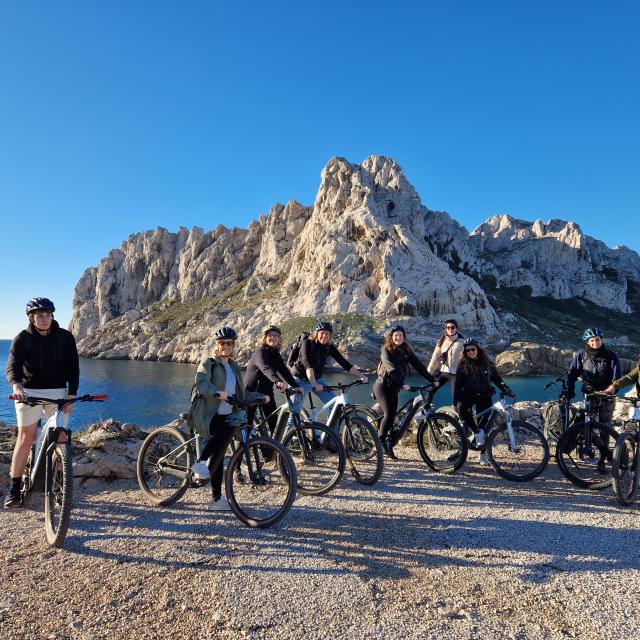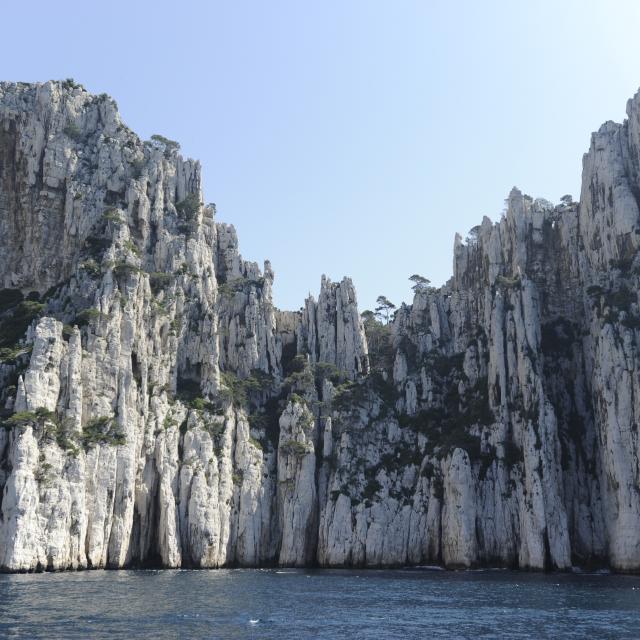Discover the calanque
An accessible cove
Podestat is a small cove, the fourth cove of the Marseilleveyre massif from Marseille. Accessible in about 2 hours of walking for 3 kms from Callelongue, it is also the last cove before approaching the col de Sormiou.
Surrounded by the minor creeks of Queyrons and Escu, it offers a fairly flat walking path along the sea. However, be sure to bring good hiking boots, as some parts can be steep!
A protected environment under surveillance
A large part of the cove is occupied by more or less coarse sand surrounded to the east and west by a rocky edge formed by large blocks, scree, with a large cave to the southwest.
The cove ends with a pebble beach that extends underwater. There is no Posidonia meadow, but the presence of roots and dead matte under a few centimetres of sediment shows that this ecosystem was formerly established in this cove. Its disappearance is probably linked to the proximity of the Cortiou outfall, which has been discharging waste water from the Marseille conurbation since 1896.
The cove is dominated by the Têtes de Malvallon and the plateau of the dead man.
